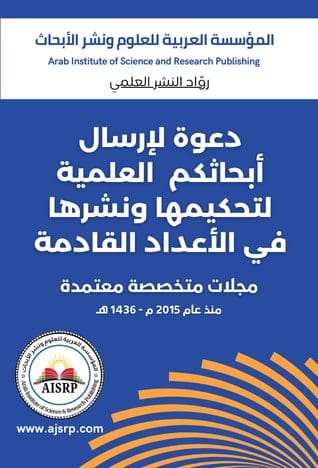Abstract:
The purpose of this research was to evaluate the knowledge, attitude, and practices (KAP) of the healthcare professionals (HCPs) about pharmacovigilance in Aseer Central Hospital in Saudi Arabia. A cross-sectional study was conducted using a pretested questionnaire. The questionnaire was designed to assess the KAP regarding pharmacovigilance procedure. The HCPs including physicians, nurses, and pharmacists, working in the Aseer Central Hospital participated in the research. Consents were first distributed to the HCPs and only those who gave their consents to were included in the research. The data were analyzed by using the Statistical Package for Social Sciences (SPSS) statistical software, version 22.
The results showed that the majority of the healthcare professionals had good knowledge and attitude regarding pharmacovigilance and understand the necessity of reporting ADRs. However, the rate of reporting ADRs by the HCPs was remarkably low. There was a big gap between the ADRs experienced and ADRs reported by the participant HCPs. It was also found that there is a positive correlation between the training of pharmacovigilance and reporting ADRs reporting. It was realized that the majority of respondents agreed that reporting of ADRs was necessary and also were aware that pharmacovigilance should be taught in detail to healthcare professionals as that they have started to understand the importance of pharmacovigilance.
The purpose of this research was to evaluate the knowledge, attitude, and practices (KAP) of the healthcare professionals (HCPs) about pharmacovigilance in Aseer Central Hospital in Saudi Arabia. A cross-sectional study was conducted using a pretested questionnaire. The questionnaire was designed to assess the KAP regarding pharmacovigilance procedure. The HCPs including physicians, nurses, and pharmacists, working in the Aseer Central Hospital participated in the research. Consents were first distributed to the HCPs and only those who gave their consents to were included in the research. The data were analyzed by using the Statistical Package for Social Sciences (SPSS) statistical software, version 22.
The results showed that the majority of the healthcare professionals had good knowledge and attitude regarding pharmacovigilance and understand the necessity of reporting ADRs. However, the rate of reporting ADRs by the HCPs was remarkably low. There was a big gap between the ADRs experienced and ADRs reported by the participant HCPs. It was also found that there is a positive correlation between the training of pharmacovigilance and reporting ADRs reporting. It was realized that the majority of respondents agreed that reporting of ADRs was necessary and also were aware that pharmacovigilance should be taught in detail to healthcare professionals as that they have started to understand the importance of pharmacovigilance.
Keywords:Adverse drug reactions, attitude, knowledge, pharmacovigilance, practice, spontaneous reporting, underreporting
الملخص
وأظهرت النتائج أن غالبية أخصائيي الرعاية الصحية لديهم معرفة وسلوكيات جيدة فيما يتعلق بتفاعلات الأدوية وتفهمهم لضرورة الإبلاغ في حال وجود تفاعلات دوائية ضارة. وعلى الرغم من ذلك، معدل الإبلاغ عن التفاعلات الدوائية الضارة من قبل إخصائي الرعاية الصحية كان منخفضاً بشكل ملحوظ. كما كان هناك فجوة كبيرة بين التفاعلات الدوائية الضارة التي حدثت وبين عدد مرات الإبلاغ عنها. وتبين أيضا وجود علاقة إيجابية بين التدريب على الصيدلة الاحتراسية والإبلاغ عن التفاعلات الدوائية. وأظهرت النتائج موافقة غالبية المستجيبين على ضرورة الإبلاغ عن التفاعلات الدوائية الضارة، وتبين وجود وعي كبير من قبلهم بهذا الشأن، إلى جانب تأكيد المستجيبين على ضرورة تدريس الصيدلة الاحتراسية والتفاعلات الدوائية الضارة بشكل مفصل لأخصائيي الرعاية الصحية.
الكلمات المفتاحية: التفاعلات الدوائية الضارة، سلوكيات أخصائيي الرعاية الصحية، التأثيرات الدوائية، عدم الإبلاغ
Authors /
Ali Mohammed Abomughayedh Mohammed Salah Ali
Riyadh Elm University || KSA
DOI: 10.26389/AJSRP.A020718 عرض البحث كامل عرض العدد كامل



